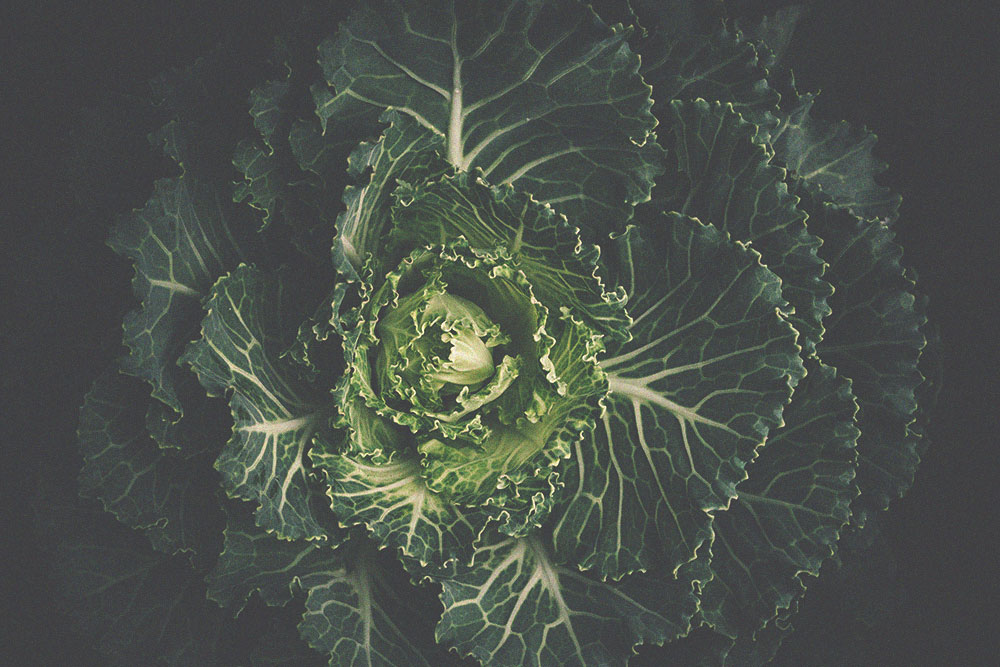Turns out, there may be some truth to the inspiration behind Cabbage Patch kids! Let’s learn more about cabbage and its role in fertility.
BY: KENDRA TOLBERT, MS, RDN, CDN, CLC
In every culture, there are foods that are commonly eaten by women when they’re preparing for pregnancy. And in many cultures, special foods are given as a symbolic gift to bless a couple’s fertility. Often, these gifts are fruits and vegetables.
One of which happens to be cabbage.
It’s nearly impossible to talk about cabbage without thinking about those uber popular dimpled Cabbage Patch Kid dolls that so many kids loved in the 80s and 90s.
Ever wonder where their name and (slightly zany) backstory came from? In case you don’t know, according to their official website, Cabbage Patch Kids are born as a result of bunnybees pollinating cabbage patches with magical crystal dust.
While we won’t know for sure, this story may have been at least partially inspired by a few fertility myths and traditions:
- In the UK, cabbage was eaten to promote fertility.
- In the U.S., parents in the South skated around the, “where do babies come from?” question by telling their kids they found them under cabbage leaves to avoid the uncomfortable truth.
- In Scotland, children have been known to ask fairies for a new baby for their family on Halloween by stacking cabbage leaves around the entrances to their homes.
Maybe they were on to something…
So what does the science say about cabbage and fertility health?
While there aren’t any studies directly linking cabbage to improved fertility, there’s plenty of research around the potent nutrients cabbage is packing. And each of those nutrients might positively impact fertility.
Source of Diindolylmethane (DIM)
As an antioxidant, anti-inflammatory, and detox promoter, DIM is found in cruciferous vegetables like broccoli, cauliflower, and, of course, cabbage. DIM has been studied for its function in supporting estrogen metabolism as well as its anticancer properties.
Its role as an antioxidant protect eggs and sperm from oxidative stress, shielding them from damage. Its anti-inflammatory effects may help keep your uterus and other reproductive organs healthy, especially for those with any chronic conditions.
Packs a lot of Fiber
Cabbage, like all vegetables, is full of fiber, which is crucial for gut health and proper detoxification.
Fiber is also an important player in keeping blood sugar stable. Blood sugar stability is important for all women, even more so for those who have been diagnosed with Polycystic Ovarian Syndrome (PCOS) whose fertility may be impacted by it. Including fiber rich foods at meals can keep your blood sugar from sudden spikes or dips.
Full of Folate
Every good preconception plan and fertility boosting eating pattern includes the daily recommended amount of folate. Fortunately, cabbage is a good source of this super important B vitamin. 1 cup of cooked cabbage delivers about 10% of the amount women should get in a day, while 1 cup of kimchi provides nearly 20%.
So how can you get more cabbage in your diet?
- Add shredded cabbage to tacos or nachos in place of lettuce.
- Sautée cabbage as a simple and tasty side dish.
- Sprinkle shredded cabbage on salads, wraps, or sandwiches.
- Chop cabbage and add it to your favorite soup recipe.
- Opt for kimchi stew the next time you go to a Korean restaurant or make your own.
- The next time you’re making a bliss bowl, add some sauerkraut or kimchi to it.
- Blend cabbage into a smoothie in place of the usual kale or spinach.
Tradition and science have both made it pretty clear that your health and fertility can be affected by what you eat. Choose foods that make you feel good and that taste good.
Hopefully cabbage fits the bill, but if not, no worries. There are loads of tasty, nourishing, and fertility supporting food options for you to choose from.
Adapted from the original article.
HEADER IMAGE: SCOTT WEBB
Kendra Tolbert, MS, RDN, CDN, CLC is a registered dietitian nutritionist, certified lactation counselor, and certified aromatherapist based in Alexandria, VA. Through her private practice, she helps women and couples prepare for pregnancy and enjoy healthier, happier pregnancies. Learn more about Kendra at Live Fertile.

